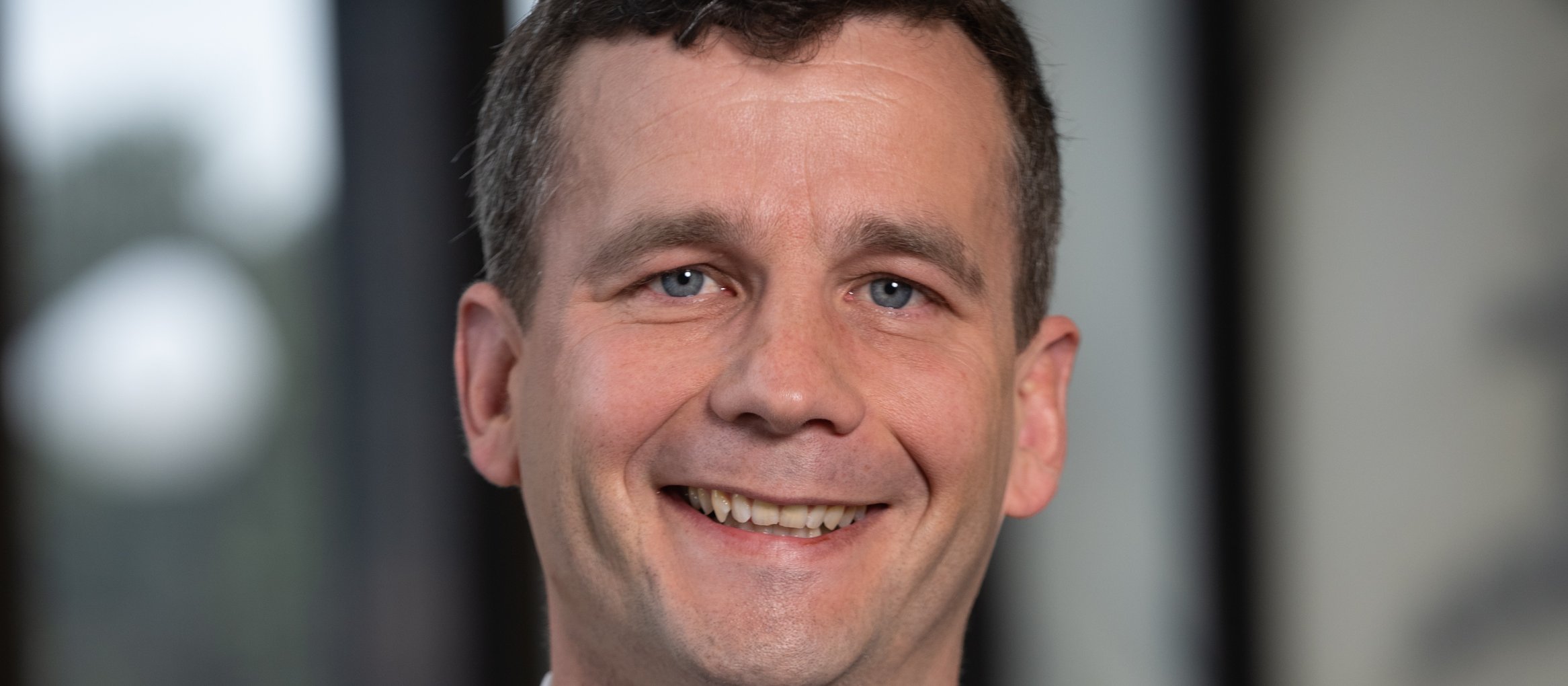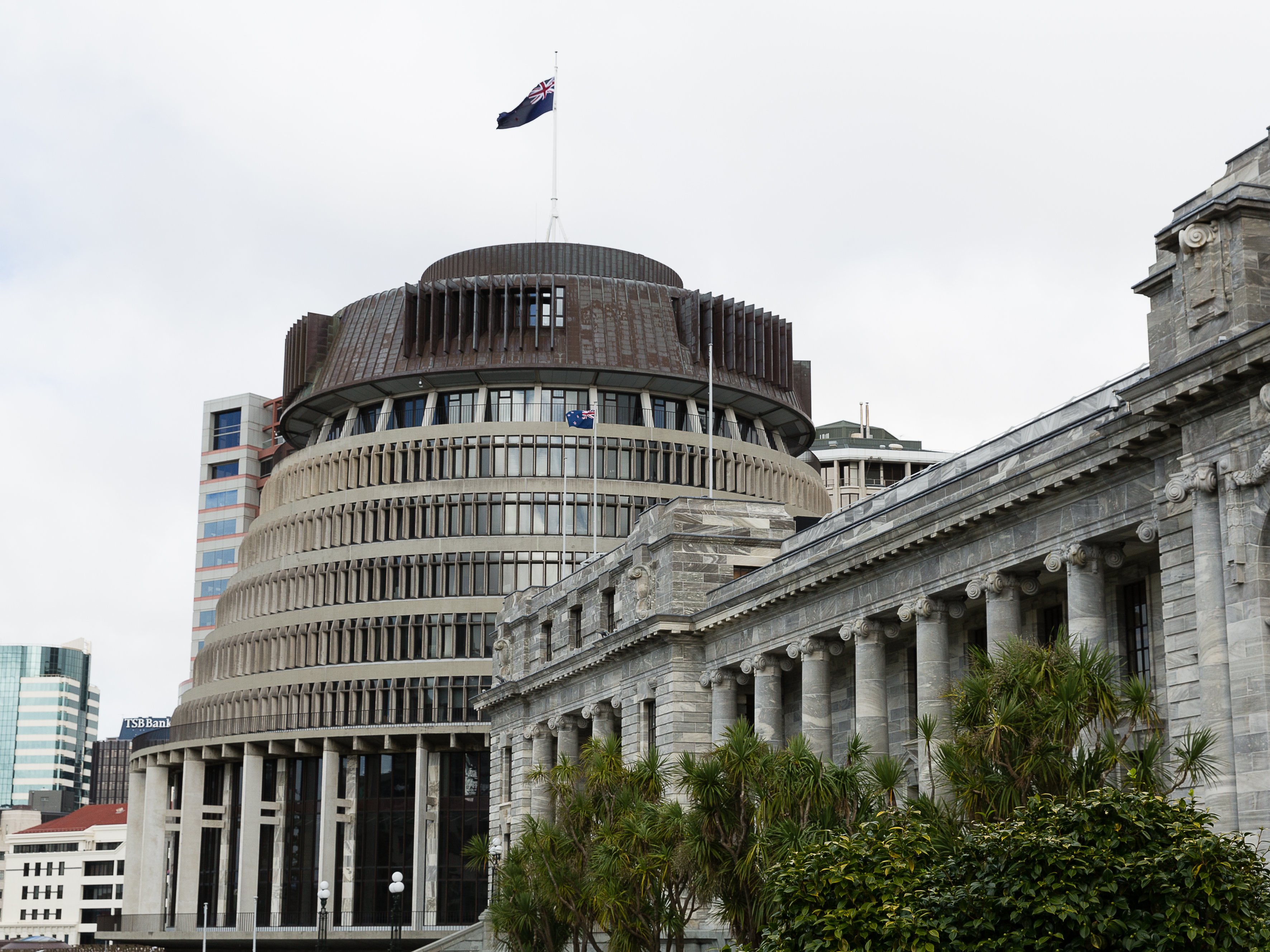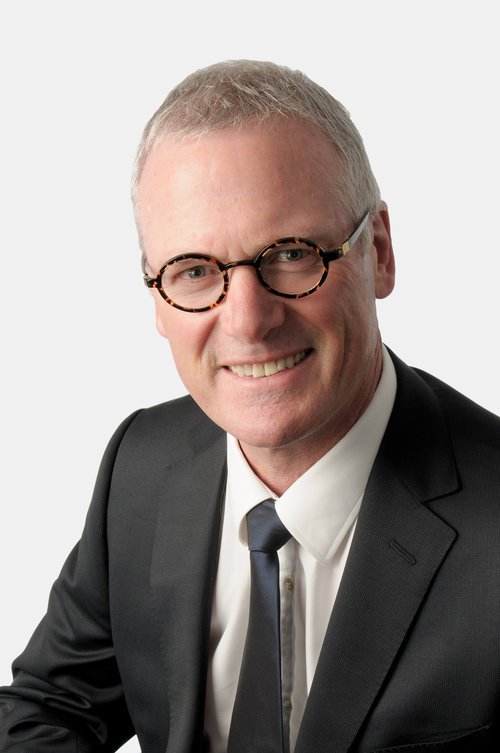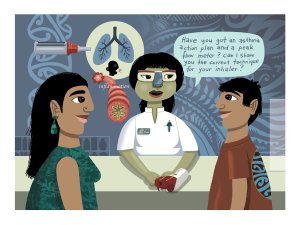Academic pharmacist Nataly Martini discusses the medical management of asthma in adults and adolescents, which has evolved to prioritise early anti-inflammatory treatment. She also explains how to improve patient outcomes by proactively identifying poor asthma control and supporting equitable access to education and treatment
David Seymour's ‘whole of society’ plan for tipping millions of dollars more in to Pharmac - and Big Pharma
David Seymour's ‘whole of society’ plan for tipping millions of dollars more in to Pharmac - and Big Pharma

The very idea of Pharmac presents a conundrum for the minister in charge, Act leader David Seymour.
His mum was a pharmacist, but in a Venn diagram of Seymour and Pharmac the circles would barely overlap.
For Act the market is king, subsidies are evil and success is spending as little taxpayer money as possible.
Pharmac was established in 1993 to stand in the way of the market. It's a monopoly drug buyer, using taxpayer money to fund medicines.
Pharmac is exempt from the Commerce Act, which encourages competition. The pharmaceutical industry in New Zealand opposed that, taking it all the way to the Supreme Court. Pharmac won.
The exemption was something that in 2006 Act tried, unsuccessfully, to overturn. Its deputy leader Heather Roy told Parliament the exemption was neither necessary nor justifiable.
"It denies choice for doctors and patients, limits public access to new medicines, and discourages research and development," Roy said.
"Without the Commerce Act exemption, patients would be able to access the medicine that best treats them, often at a lower cost, instead of being limited to whichever medicine Pharmac bureaucrats have endorsed."
Seymour also commits Act party sacrilege by wanting to increase government spending on Pharmac - while much of the state sector shrinks.
In recent months $2.4 billion has been mainlined into Pharmac, including $600 million to rescue National's faltering promise to fund new cancer drugs.
In fact it was Seymour who stood strong to defend the (the anti-market)
Pharmac model, after National got itself in a pickle by promising to fund 13 specific cancer drugs in the 2023 election campaign.
That created a schmozzle because Pharmac is supposed to be independent of meddling ministers and also because it relies on secrecy about which drugs it wants to fund so it can haggle with 'Big Pharma'.
Seymour told RNZ that National's Finance Minister Nicola Willis set out the options to get the promise over the line.
"One would be to just direct Pharmac - and technically, legally, we could do that - but I said 'that's a non-starter,' that would have undermined their integrity."
Option two was to create a separate drug buying agency just to fund the cancer drugs, which he says would have created "crazy consequences" and two agencies with different riding instructions.
Seymour went with option three: tip money into Pharmac to allow National to meet its promise.
"The byproduct of that is that the amount of money that went in was over twice as much as they had anticipated." Instead of the 13 cancer drugs National promised, Pharmac had the money for 26 cancer drugs and 54 new medicines overall.
"We went as close as you could to breaching the integrity of the model," Seymour admits. He didn't ask Pharmac to reveal its secret ranking list of drugs it wants to buy (the 'Options For Investment' list).
"But just give us an idea of what it would take to be able to, hand on heart, say we've fulfilled the promise - and they said well, about this much."
But how can he regard it as a success to spend twice as much money as a promise necessitated?
"Fair enough," Seymour concedes with a chuckle, before laying out why he thinks Pharmac is different. "It's true that in just about every area, Act is in favour of the government spending less but I've never said that about pharmaceuticals. I've always believed that we under invest in pharmaceuticals."
He also works his argument around - and this is important because it's at the core of his plan to reform Pharmac - to claim that, with medicines, governments can save money by spending money.
Like many electorate MPs it's something Seymour hears from constituents.
"If the medicine was funded, not only would it be good for the constituent but it would probably increase their ability to work and pay tax, reduce the need for benefits, reduce their admission to hospital and save money in a bunch of other ways."
Clinicians have long shared this frustration. In a 2019 investigation into Pharmac RNZ quoted Brandon Orr-Walker, an endocrinologist at Middlemore Hospital, lamenting the medicines available for Type 2 diabetes. "We're working with a pharmaceutical kete which looks like the same one that you would use in a third world country. But the moment you slip into kidney failure, you will have first world provision of dialysis services."
While it may sound like homespun wisdom - a stitch in time saves nine, as the proverb says - what Seymour is proposing would be a radical transformation of Pharmac.
He wants the 'whole of society' impacts of funding (or not funding) a medicine to be evaluated, rather than just the upfront cost.
In fact, it's that or bust.
If the 'whole of society' model doesn't get across the line, Pharmac is unlikely to get any more money in the next Budget.
"I think that's almost certainly going to be the case. Not unless we do that whole of society costing," Seymour says. "We're going to be pretty tapped out in terms of further increases unless we can show their savings elsewhere."
When he first got the keys to the Pharmac medicine cupboard he found it bare.
"When I became the minister, Pharmac said: 'On our current budget track, we are going to have to start (saying) which medicines no more patients can be admitted to and then we may have to de-list some medicines that patients are currently receiving'. And I looked at Nicola Willis, and I said: 'Well, we've got no choice here'."
The government handed over $1.8 billion in April and then $600 million more to meet National's cancer drug promise.
"But having given in total now about $2.4 billion more than was promised under the Labor budget in 2023 it is going to be challenging for me to persuade other ministers that even more money should go to medicines."
Seymour says unless he can convince ministers to adopt a whole of society costing approach, New Zealand will languish at the bottom of the medicine league tables.
"If this was rugby and we were the worst in the world, there would be a national outcry and we would take a good hard look at ourselves. We've been sort of the Romania of the 'Medicines World Cup' for quite some time, and people have had to put up with it."
Changing to a 'whole of society' model probably won't require a law change - "we're open to changing legislation if we need to" - but could be achieved by Pharmac collaborating more closely with the pharmaceutical industry.
Hang on. Pharmac - which guards against price gouging by 'Big Pharma' - is going to lie down with the enemy?
"It's about starting to work more closely with the pharmaceutical companies," Seymour says. "They have good data from foreign trials of what their medicines are able to do for people, and then getting good at the kind of mathematical modelling so I can credibly go to the other ministers and say, 'look, here's the money that we think we can save based on good data'."
Playing nice with the industry is part of a culture shift he wants to see at Pharmac.
When Pharmac was set up in 1993 New Zealand was broke and desperately trying to rein in spending (even more so than now).
He says the culture has developed as Pharmac "have had the job of saying no to desperate and dying people" and "then their other job is to go toe-to-toe with 'Big Pharma'".
"So you can imagine what being treated like that - and then saying, 'here's your capped budget, good luck' - has done to their culture and I think needs to improve."
He wants Pharmac to see itself as a partner to clinicians, pharmaceutical companies and patients.
"Ultimately, their job is to get bang for buck for the taxpayer. But it doesn't always have to be, knives drawn, pistols at dawn, kind of stuff. There may be better ways to do this."
Seymour's wish for a less adversarial Pharmac lines up with the wishes of the drug companies. 'Big Pharma' submissions to the 2022 Pharmac Review, obtained by RNZ under the Official Information Act, show the companies complained about its tough negotiating style.
"Pharmac senior management and Therapeutic Group Managers can sometimes adopt an adversarial and litigious engagement style with suppliers," Johnson & Johnson said.
The drug giant also argued for Pharmac to split its roles of assessing drugs and negotiating prices. "All international jurisdictions separate out the functions of pharmaceutical assessment," it said. "The scientific assessment phase of the assessment should be separated from the pricing and reimbursement decision."
Seymour, in his Letter of Expectations to Pharmac board chair Paula Bennett, has asked Pharmac to consider that.
"Would New Zealand's needs be better served by a clear delineation of the role of value assessment and procurement in the area of medical technologies," Seymour asked in his letter to Pharmac.
So what's the answer? "It's a provocation for them," he tells RNZ. "I'm just putting up the provocation that they need to get good at doing their way or we'll look at another way."
It's fair to say that the name Pharmac does not send warm thoughts of love and appreciation through the neurons of the collective consciousness.
The standard media story goes like this: A patient needs a drug to stay alive. Pharmac says it can't afford to fund it. How could they be so heartless?
Among the 300 pages of communications between Pharmac and its PR firm Draper Cormack, released to RNZ under the OIA, was evidence of just how poorly Pharmac is perceived.
The Kantar Public Sector Reputation Index for 2022 ranked Pharmac third lowest out of 58 agencies.
Steve Maharey, who chaired the Pharmac board from 2018 to 2023, knows all about this.
"Part of the myth about Pharmac is that somehow the people in there are not concerned about what they're doing, they're just treating it like an economic exercise. The way they make judgments is not like that," he says. "It is a very emotional thing."
He concedes not enough money was put into Pharmac during his time.
"I think that there was too little spent on medicines, and it's likely that will continue because it's a never ending stream of new options that are out there and people will want to get access to them."
Maharey says there should be more focus on the profits 'Big Pharma' are making.
"The evidence around the world, and the concern that governments have about pharma companies is that people are seeing them as gouging - as getting rates of return that seem to be impossible."
He accepts that pharma companies spend a lot on R&D but says they often pick up research from universities and then develop it.
America has discovered what happens to drug prices when the state doesn't intervene.
A study by Rand Health Care found that in 2022 prices for drugs in the US were nearly three times as high as the average in 33 other high income countries.
Cancer drugs are huge earners. According to a University of Calgary study, annual revenue from cancer drug sales increased by 70 percent among the world's ten largest pharma companies over the past decade.
The weight loss wonder drugs Ozempic and Wegovy illustrate the treasure trove a pharma company can open when it hits the jackpot.
Novo Nordisk went from a low profile maker of diabetes drugs to a company with a market value of about $870 billion - bigger than Tesla. The Danish company is now worth more than the entire Danish economy.
Prices for insulin, which type one diabetics inject daily to stay alive and which some type two diabetics use to manage the condition, have increased 1200 percent in the last 20 years.
After Frederick Banting and John Macleod won the Nobel prize for the discovery of insulin in the 1920s they sold the patent to the University of Toronto for $1 because they believed everyone should have access to it.
They'd be turning in their graves at the cost of medicines today.
The website FiercePharma has a list of the top ten most expensive drugs in the US - and seven of them cost the patient more than $1 million a year.
Hemgenix, made by CSL Behring to treat the blood clotting disease haemophilia B, tops the list at $3.5 million per dose, making it the most expensive drug in the world.
You don't often hear from the chiefs of 'Big Pharma' in New Zealand.
Almost all the pressure has been on why Pharmac doesn't buy their hugely expensive drugs, rather than why they charge so much.
Drug companies have their own lobby group, Medicines New Zealand, which issues reports saying how stingy Pharmac's budget is and how slow it is to fund medicines.
But Vanessa Gascoigne, director of the New Zealand arm of the multinational Merck Sharpe and Dohme (MSD), does front up.
She arrives at the RNZ studio on her own, fully prepped and ready to put her case.
Gascoigne says the $604 million funding boost for Pharmac is a "phenomenal announcement" and a "massive advance for cancer care".
But New Zealand is still a laggard, she says, spending about six percent of its health budget on medicines, less than half the OECD average. Slice it another way and New Zealand spends about 0.5 percent of GDP on pharmaceuticals while other OECD countries spend about 1.5 percent.
Gascoigne says the government's focus on cancer drugs was justified.
"When you look at Pharmac's wish list - the drugs that they want to fund if they had the money to do so - 40 percent of them are cancer medicines, and of those 90 percent of those are funded in Australia."
Of course MSD is heavily invested in Pharmac buying more of its products - largely the immunotherapy drug Keytruda.
Keytruda is already funded for some types of non-small cell lung cancer and for late stage melanoma. Keytruda for cancers of the head and neck, breast, bowel, bladder and blood are on the Pharmac waitlist.
Gascogine says hundreds of New Zealanders are self-funding Keytruda.
In 2021, MSD said it had capped the price of Keytruda at $60,000 a year but Gascogine won't comment on price at all now.
"That's commercially confidential, the price. I can't say that. However, we do everything we can to make it as affordable as possible for patients," she says.
"Like all companies, we do need to make a profit and by making a profit that allows us to be a functional business that can then go and invest in developing new medicines."
Gascoigne says, globally, MSD put about half of its revenue into R&D in 2023, knowing that 90 percent of attempts to develop new drugs will fail.
In New Zealand MSD has 38 clinical trials involving Keytruda and 50 cancer trials all told - treating 500 patients, who get the drugs for free.
MSD is a big fan of Seymour's plans for a 'whole of society' approach to drug funding and a big critic of Pharmac's capped budget - a spending ceiling (currently nearly $1.7 billion) it cannot breach.
"We're the only country, I believe, that has a capped budget and the only country that sits with a wishlist of medicines that we've said we want to fund, they've been recommended to be funded, they're cost effective at the price given - we just don't have the money to fund them."
Drug company Bristol Myers Squibb also took aim at the capped budget in its submission to the 2022 Pharmac Review, obtained by RNZ under the OIA.
It said the fixed budget was "a significant factor driving the inequity of access to new medicines that New Zealand patients face when compared to patients in other countries".
Sanofi chimed in too, saying the capped budget "results in decisions which are definitely not in the interest of patients or the health sector".
It said patients would benefit from a "more collaborative" process which took into account "the full scope of the benefits that an intervention delivers to the patient, their family, the health care system and the broader society".
The drug companies are on board with Seymour's whole of society approach then, and the Labour party is too.
Ayesha Verrall, Health Minister in the last Labour government and now health spokesperson, supports the 'whole of society' model and says it "sounds an awful lot like the Labour government's wellbeing budgeting approach".
Verrall says Labour increased the Pharmac budget by 45 percent and funded 75 new medicines, including Trikafta for cystic fibrosis, but there is always more to do.
"New Zealanders need and deserve better access to medicines than currently enjoy," she says. "We do need to spend more to get there."
For more news from around New Zealand, go to RNZ.








